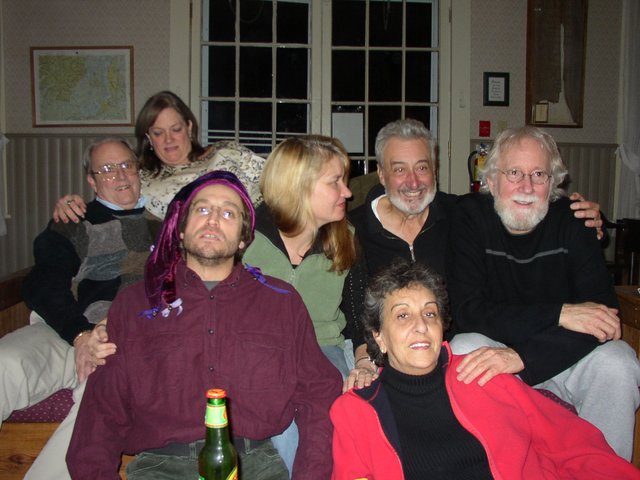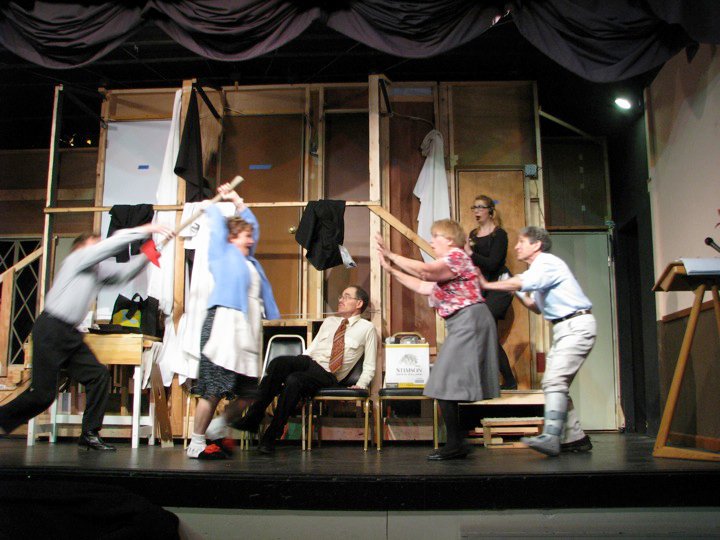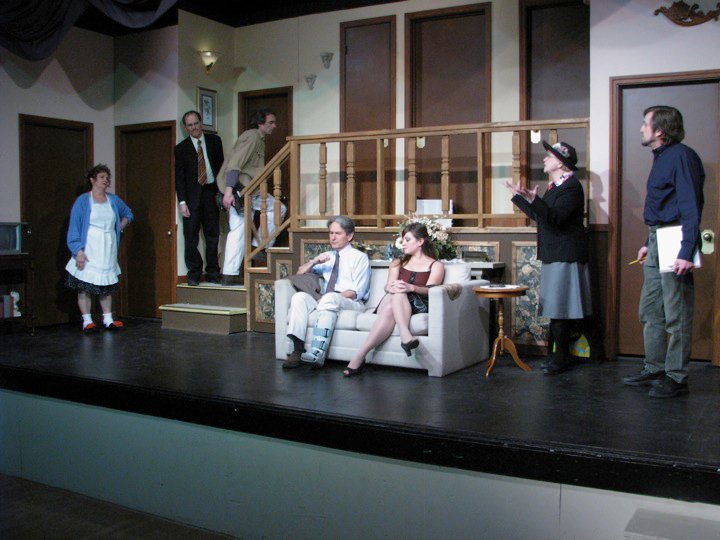Before I start:
I don’t know why I started to write this journal. I’m not known as an autobiographical writer. Before 2007, the only things I wrote were technical documents, financial analyses and reports. 2007 was one of the low points in my life. My wife was battling lung cancer, my daughter was battling her physical and emotional issues.
I went to a week long acting training program (which is a topic for another day). During one of the few breaks in the training program, I was talking to a friend about what was going on inside me and she told me that I needed to write a journal – to sort out and understand what was happening to me. For the first time (but not the last) she said I was a bomb about to explode. So I started to write a journal. For a reason I’ll never understand, my journals came out as plays. Over the next few years I wrote almost 100 short plays and 6 or 8 finished and unfinished full length plays. Rereading those plays today, I see them as metaphors of what was going on in my life. Other people usually can’t see what is underneath the metaphor but I know. And that’s what’s important.
In 2007 I was in New York for several weeks and I got to see the Pulitzer Prize winning play “Dinner With Friends” by Donald Margulies. I went to see the play in an Off-Broadway workshop production because it was directed by one of the instructors from the training program I mentioned above and I knew one of the stars in the play from the training program.
Anyway, I liked the play far more than I thought I would. (I had read the play a couple of times and didn’t see anything particularly compelling about it.) You’ve heard me say this before but I thought the playwright and director told the wrong story. So I set out to write the story I thought should have been told.
I worked on the play for well over a year, getting it to just the point I wanted. It went through several total re-writes as I polished it. Along with the re-writes the title of the play changed several times from “Coffee With A Friend” to finally “Husbands And Other Lovers”. When I had polished it to (what I thought was) brilliance, I circulated it to several friends. That list has gradually expanded to a couple dozen friends. No one liked it. Not a single person. I got lots of feedback on what was wrong with it: “It isn’t funny enough”; “It needs older actors”; “You can do better than this”; “It’s trite, predictable and done to death.” and so on. Over the next year I rewrote it a couple of times to address the issues raised but the reviews didn’t improve. I finally realized that the play no longer told the story I originally set out to tell: It had been written by committee. By trying to incorporate what everyone wanted, it no longer meant anything to me.
I stopped writing. I made a couple of half hearted efforts to write plays but my heart wasn’t into it. A very good friend finally told me: “This play is eating a hole in you. You need to get past it. You run the theater. Do it. It’s not going to stop eating at you until you get it on stage.”
He was right. BUT . . . After I thought about it I realized that IF it was as bad as everyone said (and I had to give that possibility some credibility – after all they were my friends and if my friends didn’t like it, what would an audience think of it?) So I put the play aside and, though I continue to pull it out from time to time and have made a short play out of what I thought were the best parts, I have finally been able to get past it. For what it’s worth, several months ago I made another rewrite of the shorter version and gave it to a friend to read and told her: “If you don’t like it, just tell me you haven’t read it yet.” So far she hasn’t read it yet . . . . . (Yes, I have asked her.)
So seven years after writing “Husbands And Other Loves” I am writing again. But not plays this time. I don’t know why. Just because.
Before I get back to “Love Song” there is one more thing I want to talk about: The week long acting training workshop. In the early days, the workshop took place on Orcas Island. Called SOAR (Seattle-Orcas Acting Retreat), the program started on Sunday at noon and ended the following Sunday at noon. There have been a few things that I have done in my life that were really “life Changing”. This acting program was one – even though I was technically a director at the time.
Another was a three day training program about how to negotiate: How to negotiate with unions, how to negotiate for a new car and how to negotiate when the other entity has all the power (like a government agency).
Without digressing too far: With a government agency, there is ALWAYS something they want more than money. You just have to find it. A case in point is the Bonneville Power Administration. At the time I was CEO of our local power company. Every year we paid BPA $2,500,000 for power. A lot of money? Yes. But to BPA, with a $4,000,000,000 budget, maybe not a lot of money.
Every two years, BPA adjusted their wholesale power rates based on projections for the next two years. During one of these rate cases the overwhelming number of BPA customers were trying to buy as little power from BPA as possible because there were going to be cheaper sources of power (remember Enron?). BPA was getting a lot of political pressure to let their utility customers buy as little power from BPA as possible. Our power company (and a couple other small BPA customers) went just the other way: We wanted to buy all of our power from BPA for as long as they would let us. BPA was so happy to have a few customers to stand up for them on a regional and national level that they offered us a five year fixed price contract. We signed the contract along with a couple of other utilities. When all the dust had settled, our contract was about 60% of what all the other utilities had to pay. There was something that BPA wanted more than money: Political support from their customers.
Okay, back to the topic (sub-topic? Sub-sub Topic? Sub-sub-sub Topic?):
Life Changing: The workshop was expensive: Tuition $500, Room and Board $500 plus travel to get there. The instructors were world class. With 20 to 25 students, the class size was 4 to 6 people. I learned a lot about acting but I learned even more about directing and even more about the world of acting. After the first year, the class moved off Orcas Island to a small town on the Olympic Peninsula and was renamed to AIRE (Actors International Retreat Experience).
Each day started off with a group breakfast at 7 am, classes ’till noon, then lunch the more classes until 4 or 5 pm, then a break them dinner and a two or three hour session between 7 and 10 pm. When there was a break, we spent it with our assigned scene partner running lines from the scene we would be doing together.
The after dinner session was always special. Each instructor had a night, it might be Shakespeare one night; a mystical improvised journey the next and something to do with movement another night. Saturday was our opportunity to show the others in our class what we had been working on all week. In the morning were the scenes, in the afternoon simulated auditions for roles we had been studying. After dinner there was a big party where the students and instructors could do anything they wanted: Sing, dance, inprov, or whatever. Great way to end the session.
It was clear to me the there were not enough actors to support the fixed cost of the program. I worked hard to get actors I knew to attend. It got to the point where half the class were people I had recruited for the program.
After a couple of years it became clear to me that the biggest problem was the target audience: Young professional actors. These actors were, for the most part, not making a living from acting but had day jobs to put bread on the table and actors at night. $1,500 for a week (including airfare) was more than they could afford. I suggested to the workshop leader that, between us, we could broaden the group to community theater people like those from Orcas. Most to the Orcas people who attended were later in their lives and were retired or at least had jobs that enabled them to afford the workshop. My suggestion was summarily rejected and the program failed two years later.
I tried to restart the program for several years but was always blocked in my efforts.
I’m really sorry that the program doesn’t exist any more. The people who took those workshops are the best actors around here.
That’s it for today. I’ll try to get back to Love Song” Next time.
Doug








